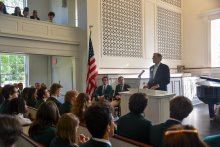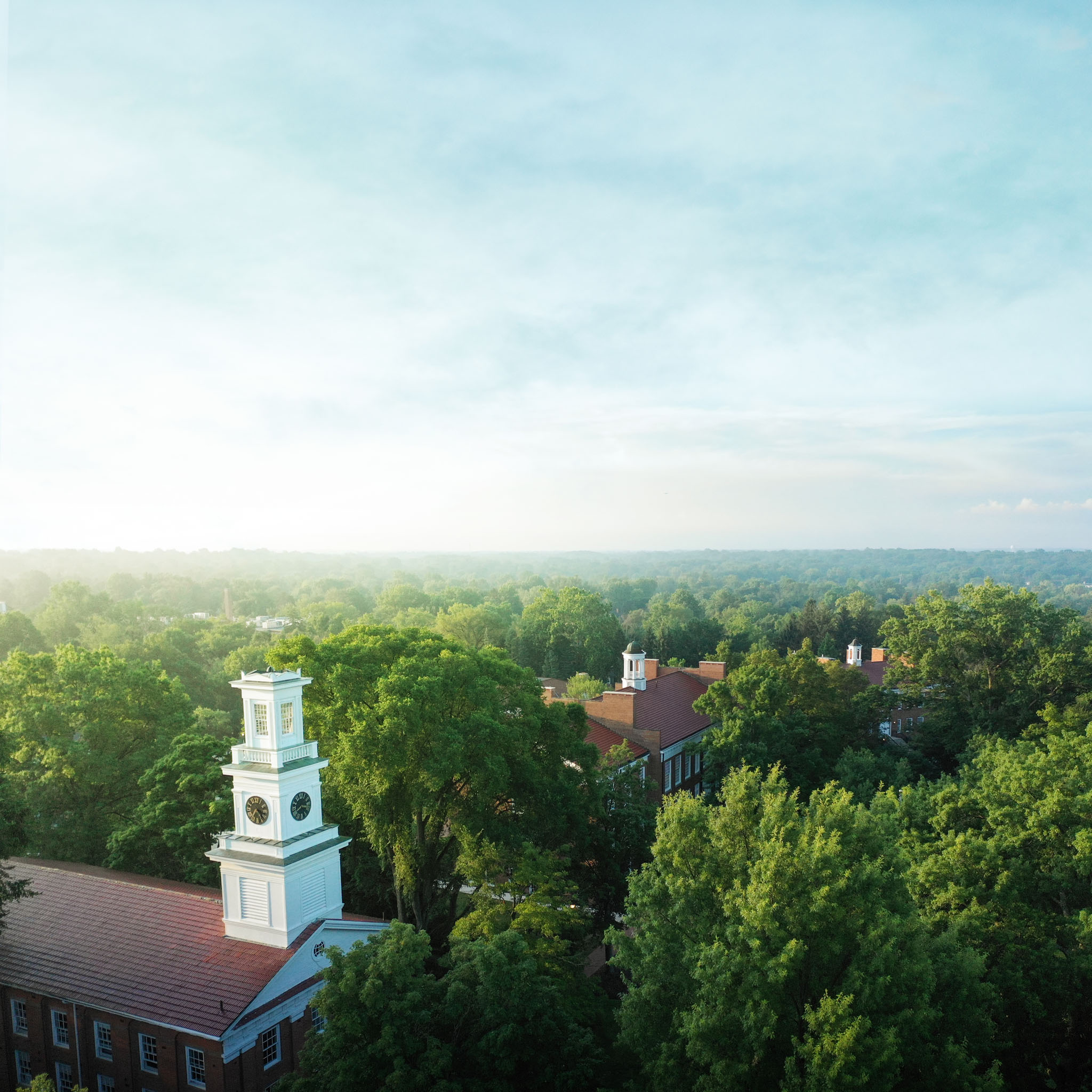
On Friday, Sept. 22, Western Reserve Academy welcomed Class of 1975 alumnus and Board of Trustee member John P. Hewko ‘75 to share his perspective on the devastating and complicated crisis happening in the Ukraine. But first, John W. Hallowell Chair in Philosophy and Ethics and Social Science Department Chair Dr. Lisabeth Robinson provided powerful context.
“We learn from history that we do not learn from history,” Dr. Robinson shared the George Hegel quote that Hewko included beside his photo in the 1975 WRA Hardscrabble yearbook. Dr. Robinson reminded students that Hewko’s formative years were spent in the midst of the Watergate scandal and the Vietnam war, perhaps inspiring his future career in history and politics. Hewko’s study at Hamilton College, Oxford and Harvard University turned to decades of foreign assistance work, including distributing billions in aid and medical access, all for the greater good. Still, Hewko considers Western Reserve Academy (even in comparison with the prestigious institutions above), the most transformative educational force in his life.
To begin, Hewko invited the audience to consider a number of sobering questions. How many of us had heard an air raid siren or have had to spend a night in an underground shelter? How many of us have experienced the threat of a military attack or have witnessed the destruction of our neighborhoods, community, schools and hospitals? Have we ever had to leave everything behind in 24 hours? Have we lost family members, friends, our sense of safety and freedom? How many of our lives have been shattered forever by conflict and war? If Hewko had been standing in front of Ukrainian students, who look very much like our WRA community, almost every member of the audience would have raised their hands.
For Hewko, these questions are incredibly personal. His parents immigrated to the United States from the Ukraine in the 1940s, which was “a gift,” Hewko said, and he still has many family members in the country. He worked in the Ukraine for many years and is determined to extend support throughout this incredibly difficult period in Ukraine’s history.
To comprehend the ongoing conflict in Ukraine, Hewko said, we must dissect and debunk the reasons behind it. Why did Vladimir Putin choose to attack Ukraine on February 24, 2022? According to Hewko, claims such as the need to protect Russian-speaking populations and culture, combat Nazism and extremism have been debunked as false. Instead, this desperate need for expansion seems rooted in Putin's vision of Ukraine as an obstacle, a threat to authoritarianism and ultimately a barrier to restoring the Soviet Union.
The conflict in Ukraine is not merely a regional issue; Hewko said. This war has far-reaching global implications. Hewko described how Russian victory could shift the world dynamic, emboldening authoritarian regimes and endangering global stability.
As Dr. Robinson reminded the community in her introduction, humans throughout history are nuanced and complex, capable of spreading good and evil. The ongoing conflict in Ukraine reflects this, especially as Hewko challenges us to consider the devastating impact of war. In his opinion, this conflict threatens the democracy we work so hard to protect. History reminds us of the power of post-war societal changes that pave the way for more democratic futures, and it is Hewko’s hope that a Ukrainian victory could catalyze positive change throughout the world.
The Ukrainian people's resilience in the face of unimaginable hardship serves as a poignant reminder that history's lessons demand our attention, action and empathy.
WRA Board of Trustee John Hewko ’75 is the general secretary and chief executive officer of Rotary International and The Rotary Foundation.
While working in Ukraine in the early 1990s, Hewko assisted the working group that prepared the initial draft of the new Ukrainian post-Soviet constitution and was a charter member of the first Rotary club in Kyiv.
As general secretary, Hewko leads a diverse staff of 800 at Rotary International’s World Headquarters in Evanston, Illinois, USA, and seven international offices.












